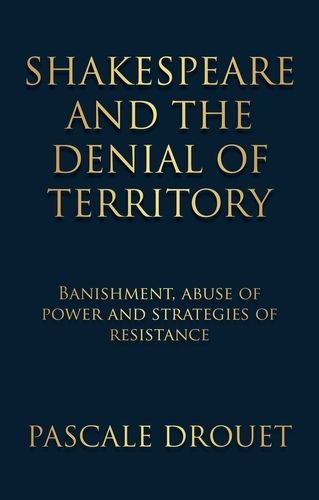Readings Newsletter
Become a Readings Member to make your shopping experience even easier.
Sign in or sign up for free!
You’re not far away from qualifying for FREE standard shipping within Australia
You’ve qualified for FREE standard shipping within Australia
The cart is loading…






This book analyses three Shakespearean plays that particularly deal with abusive forms of banishment: King Richard II, Coriolanus, and King Lear. In these plays, the abuses of power are triggered by fearless speeches that question the legitimacy of power and are misinterpreted as breaches of allegiance; in these plays, both the bold speech of the fearless speaker and the performative sentence of the banisher trigger the relentless dynamics of what Deleuze and Guattari termed ‘deterritorialisation’. This book approaches the central question of the abusive denial of territory from various angles: linguistic, legal and ethical, physical and psychological. Various strategies of resistance are explored: illegal return, which takes the form of a frontal counterattack employing a ‘war machine’; ruse and the experience of internal(ised) exile; and mental escape, which nonetheless may lead to madness, exhaustion or heartbreak. – .
$9.00 standard shipping within Australia
FREE standard shipping within Australia for orders over $100.00
Express & International shipping calculated at checkout
This book analyses three Shakespearean plays that particularly deal with abusive forms of banishment: King Richard II, Coriolanus, and King Lear. In these plays, the abuses of power are triggered by fearless speeches that question the legitimacy of power and are misinterpreted as breaches of allegiance; in these plays, both the bold speech of the fearless speaker and the performative sentence of the banisher trigger the relentless dynamics of what Deleuze and Guattari termed ‘deterritorialisation’. This book approaches the central question of the abusive denial of territory from various angles: linguistic, legal and ethical, physical and psychological. Various strategies of resistance are explored: illegal return, which takes the form of a frontal counterattack employing a ‘war machine’; ruse and the experience of internal(ised) exile; and mental escape, which nonetheless may lead to madness, exhaustion or heartbreak. – .